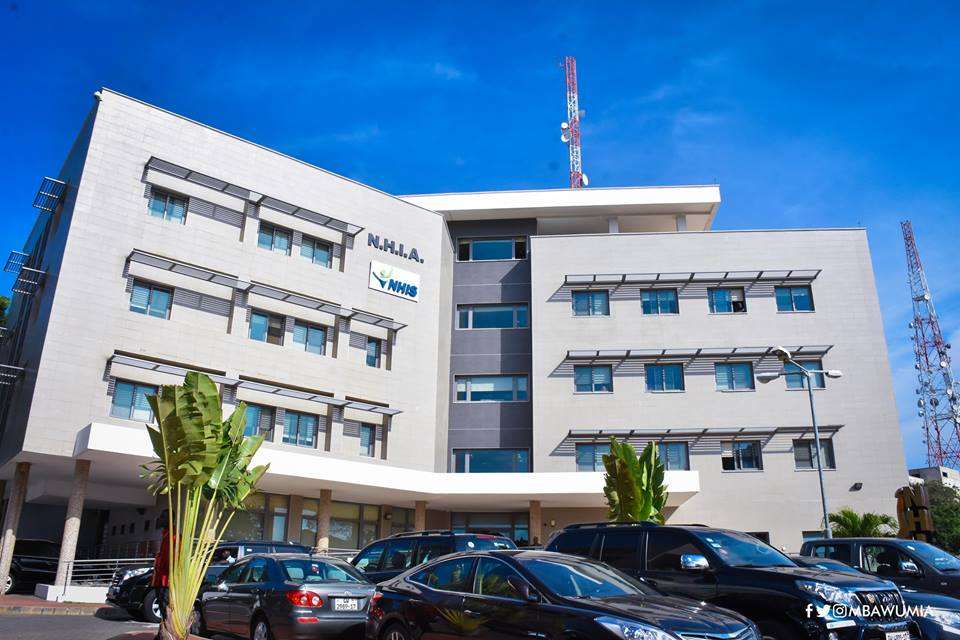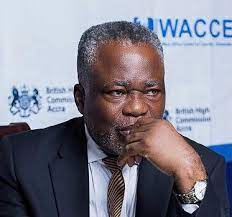The President of the Renal Patient Association, Baffour Kudjo Ahenkorah, has welcomed Parliament’s approval of the GHS 10.7 billion budget for the National Health Insurance Authority (NHIA), which will now cover dialysis sessions and related treatments for kidney patients under the National Health Insurance Scheme.
Last year, the government began piloting the integration of dialysis services into the scheme, initially targeting individuals below 18 and those aged 60 and above to assess the feasibility of full coverage.
As part of the approved disbursement formula, the NHIA has allocated GHC 2 million specifically to support financially vulnerable kidney patients within these age brackets who are undergoing dialysis treatment.
In an interview with The Vaultz News following the budget approval, Ahenkorah expressed optimism about the policy shift but also criticized the Health Minister for failing to consult the Renal Patient Association during the development of the new dialysis policy.

“We thank God that the budget has been approved, and we really appreciate it. It is something we have been fighting for. Like I said, the previous administration was working on something, and that’s where the GHC 2 million budget thing came in. It was part and parcel of the whole thing. So, we really appreciate it, at least the major burden on dialysis patients has been taken care of.
“We are really happy and we really appreciate it. When we get the opportunity to see the Minister, we will show our appreciation to him for at least listening to us as of now.”
Baffour Kudjo Ahenkorah
Mr. Ahenkorah further noted that while the inclusion of dialysis services and treatment under the NHIS is a positive and commendable development, additional measures should be taken to incorporate renal medications into the scheme as well, to ease the financial burden on patients.
Call For NHIS to Cover Medications
Furthermore, Mr. Baffour Kudjo Ahenkorah explained that the cost of renal medications has become prohibitively high, making it difficult for patients to afford them after undergoing dialysis.
Including these medications in the NHIS, he emphasized, would significantly enhance the policy and provide critical support to kidney patients struggling to cope.

“A kidney disease is a big issue. It is not only dialysis. There are a whole lot of things. But like I said, the major hurdle was the dialysis issue, but there is a lot that is about money. So we will still try to get in touch with them, especially our medication, if that one too can be put on the National Health Insurance, it will be well too, and then the injection thing that we take too. So, there are a whole lot of things going on.”
Baffour Kudjo Ahenkorah
Mr. Ahenkorah expressed concern over the apparent lack of coordination between the Ministry of Health and his association, pointing out that decisions regarding dialysis services are often made without prior engagement or consultation with key stakeholders like the Renal Patient Association.
He also raised apprehension about the sustainability of the policy, warning that without deliberate efforts to establish and equip dialysis centers in all regional hospitals, existing facilities could become overwhelmed.
This, he cautioned, could limit access for some patients and undermine the effectiveness of the newly approved initiative.
Call for Urgent Dialysis Capacity Boost
Mr. Baffour Kudjo Ahenkorah emphasized that both the Health Minister and the National Health Insurance Scheme need to address these concerns to prevent future challenges that could compromise the success of the policy.
He pointed out that with the nationwide rollout, it is critical to assess how many regional hospitals are adequately equipped with dialysis machines.
Accordingly, he warned that without such preparation, increasing demand could place undue pressure on existing facilities as the number of kidney patients continues to rise.

“The Ministry and the National Health Insurance Scheme have to provide the checkup. Because, as of last year, we were doing it, we were looking at 600 to 800, but they doubled it to 1200. As we speak now, I am telling you we are getting closer to 1600/1700. Now that it is free, people are going to go to the hospital. Initially, people were not going to the hospital for dialysis because of the money issue.”
Baffour Kudjo Ahenkorah
Mr. Ahenkorah called for a national dialogue involving government, health experts, and the youth to raise awareness about the health risks linked to dietary and lifestyle choices.
He observed that the dynamics of kidney disease have shifted, with more young people now requiring dialysis—a condition once predominantly affecting the elderly.
He attributed this trend to inadequate public education and the rampant, unregulated consumption of energy drinks and alcoholic beverages.
He stressed the urgent need for widespread education to help the youth make informed decisions, especially those in demanding jobs like commercial driving, where energy drink use has become common to combat fatigue.


















